Kerala PSC has revised the Kerala PSC ICDS Supervisor Syllabus 2024 and it is now available for candidates preparing for the Kerala PSC ICDS Supervisor Exam. Candidates should check the syllabus and prepare for the exam accordingly. The Kerala PSC ICDS Supervisor Syllabus 2024 will help candidates to focus on the subjects/topics that are important for the exam. Check out the Detailed ICDS Supervisor Syllabus 2024 and Download PDF from this article.
Kerala PSC ICDS Supervisor Syllabus 2024
The Kerala Public Service is expected to conduct ICDS Supervisor Exam in September 2024. Candidates should utilise the time and prepare the topics mentioned in the syllabus. Candidates should be aware of syllabus and exam pattern, as this provides a clear idea while preparing for the exam. Check out the detailed Kerala PSC ICDS Supervisor Syllabus 2024 mentioned in this article.
Kerala PSC ICDS Supervisor Syllabus
Candidates applied for Kerala PSC ICDS Supervisor Post can check the table below for key information related to the exam.
| Kerala PSC ICDS Supervisor Syllabus 2024 Key Information | |
| Recruiting Organisation | Kerala Public Service Commission |
| Post Name | Kerala PSC ICDS Supervisor |
| Selection Procedure |
|
| Exam Mode | OMR |
| Marks | 100 |
| Duration | 1Hr 30Mins |
| Salary | Rs. 37,400 to Rs. 79,000 |
| Official Website | keralapsc.gov.in |
Kerala PSC ICDS Exam Pattern 2024
The Kerala PSC ICDS Exam will be held in OMR Mode. Each question carries one mark. Candidates should prepare the topics mentioned in the Kerala PSC ICDS Supervisor Syllabus 2024 for better scoring in the exam.
| Kerala PSC ICDS Exam Pattern | ||
| Subjects | Marks | Duration |
| Sociology | 25 | 1Hr.30 Mins |
| Social Works | 25 | |
| Psychology | 25 | |
| Community Science/Home Science | 25 | |
Kerala PSC ICDS Supervisor Revised Syllabus 2024
Kerala PSC ICDS Supervisor Syllabus 2024 is divided into four Parts, the questions are designed to test the ability of the candidate’s overall knowledge. Candidates should focus more on the topics and should have knowledge of education also. Here, we have provided the detailed Kerala PSC ICDS Supervisor Syllabus 2024.
Kerala PSC ICDS Supervisor Syllabus 2024 Part 1 Sociology
MODULE 1: Basics of Sociology (4Marks)
Key Sociological Concepts
- Society, Community, and Culture
- Socialization and its Impact on Child Development
Nature and Composition of Family
- Characteristics of Family
- Functions and roles of family
- Socialization and support systems within families
Types of Families
- Patriarchal and Matriarchal Families
- Joint Family-Extended Family-Nuclear Family
- Merits and Demerits of Joint Family
- Disintegration of Joint Family in India-Causes: Urbanization, modernization, economic pressures, individualism
Changing Role of Family
- Shifting gender roles, women’s workforce participation, evolving parental responsibilities
- Modern Trends in Family Structures-Rise in nuclear families, delayed marriages, higher divorce rates, single-parent households
MODULE 2: SOCIAL PROBLEMS (6 Marks)
Domestic Violence and Alcoholism
- Definition, causes, and effects
- Legal frameworks and support systems
Dowry and Dowry Deaths
- Cultural context and consequences
- Legislations and enforcement measures
Drug Addiction
- Types of drugs, causes of addiction, social impact
- Rehabilitation and prevention strategies
Child Labour, Child Abuse and Delinquency - Forms, causes, and impact on society
- Legal rights and protections for children, POCSO-The Juvenile Justice (Care and Protection of Children) Act 2000
Violence Against Women - Forms of violence, societal impact
- Legal frameworks and protective measures
Problems of the Elderly - Social, psychological, and economic issues-Elder Abuse
- Social security measures and elder care
Problems of Transgenders - Causes, consequences, and solutions
- Government policies and programs
Unemployment and Underemployment - Causes, consequences, and solutions
- Government policies and programs
MODULE 3: DEVELOPMENTAL ISSUES
Poverty Alleviation Programmes (4 Marks)
- Overview of major programs and their impact
Consumerism - Definition, causes, and societal impact
Rural-Urban Disparities - Economic, social, and infrastructural differences
- Government initiatives to bridge the gap
Environmental Degradation - Air Pollution: Causes, effects, and control measures
- Water Pollution: Sources, consequences, and solutions
- Solid Waste Management: Challenges and strategies
- Climate Change: Causes, impacts, and mitigation
Problems of Induced Displacement - Social, economic, and cultural issues
- Rehabilitation and resettlement policies
MODULE 4: WOMEN AND DEVELOPMENT (6 Marks)
Women in Governance
- Participation in political and administrative roles
- Challenges and opportunities
Gender Issues
- Gender inequality and discrimination
- Policy interventions and societal changes
Empowerment of Women
- Economic, social, and political empowerment strategies
Participation in Socio-Political Activities
- Role of women in civic engagement and political processes
Women in Panchayat Raj Institutions
- Contributions and challenges faced by women leaders
Role of Self-Help Groups (SHGs)
- Economic and social impact of SHGs on women’s development
MODULE 5: TOOLS AND TECHNIQUES FOR MONITORING AND EVALUATING ICDS PROGRAMES (5 Marks)
Primary and Secondary Data
- Definitions, sources, and methods of collection
Observation Techniques
- Participant Observation: Methods and applications
- Non-Participant Observation: Advantages and limitations
Interview Schedule
- Structured and unstructured interviews
- Techniques for effective interviewing
Questionnaire
- Structured vs. Unstructured questions
- Open vs. Closed questions
Case Study Method-Focus Group Discussion-Participatory Rural Appraisal
- Definition, methodology, and applications
- Advantages and limitations
Kerala PSC ICDS Supervisor Syllabus 2024 Part-II Social Work (25 Marks)
MODULE 1: Social Work as a profession (5 Marks)
- Historical Evolution of Social work
- Differentiation of social service and social work Ideologies, Values, Principles and code of ethics of the social work profession
- Professional associations of social work – IFSW, IASSW, NAPSWI, ISPSW, KAPS, ASSK
- Core Competencies of a professional social worker
MODULE 2: Primary Methods of Social Work (8 Marks)
- Social Case Work: concept, principles, process, skills and scope
- Social Group Work: concept, principles, process, skills and scope
- Community Organisation: concept, principles, process, skills and scope
MODULE 3: Secondary Methods of Social Work (8 Marks)
- Social Welfare Administration: concept, principles, process and scope
- Social Action: concept, principles, process and scope
- Social Work Research: Quantitative, Qualitative and MixedMethods, Experimental research, sampling, tools of data collection, statistical analysis ( Measures of central tendency, Measures of dispersion, Correlation, t test, ANOVA, Chi Square)
- Qualitative designs, qualitative data analysis
MODULE 4: Social Work Practice in Child Protection (4 Marks)
- Social Work Practice in the Context of Child Rights, JJ systems (CWC, JJB, DCPU etc.), ICDS, Kaval, Kaval Plus,
- Poshan Abhiyaan (National Nutrition Mission)
Kerala PSC ICDS Supervisor Syllabus 2024 Part-III Psychology (25 Marks)
Module 1. Attention Consciousness and attention: (2 marks)
- Controlled and Automatic processes Functions of attention
- Vigilance, Selective attention, Divided attention, Sustained attention and Alternating attention Physiological basis of attention.
Module 2. Perception Nature of perception: (2 marks)
- Perceptual organization and constancies; Depth perception
- Bottom up and top-down approaches: Direct perception.
Module 3. Memory and Forgetting Models of memory: (2 marks)
- Atkinson-Shiffrin model, Levels of processing model, working memory model Why we forget
- Consolidation theory, Interference theory, Decay theory, Cue dependent forgetting, Displacement theory, Repression, Amnesia.
- Testing memory: Components of memory tests; WMS and PGI memory test Physiological basis of memory
Module 4. Intelligence and Creativity Traditional theories: (2 marks)
- Two factor theory (Spearman and Cattell)
- Multifactor theory; Hierarchical model. Structure of intellect model Contemporary theories: Triarchic theory; Multiple intelligence theory; Emotional intelligence theory.
- PASS model Creativity- Nature of creativity; Stages of creativity, Divergent and Convergent thinking.
Module 5 . Thinking Problem solving: Types of problem: (2 marks)
- Approaches to problem solving; Types of heuristics, Reasoning: Deductive reasoning Syllogistic and Inductive reasoning.
Module 6. Motivational and Emotion Biological aspects of motivation Instinct theory and Ethology: (2 marks)
- Homeostasis and arousal theory; Biological needs and drive reduction. Psychological aspects of motivation
- Locus of control and motivation; Intrinsic and extrinsic motivation; Level of aspiration.
- Knowledge of result; Frustration aggression model. Types of emotion, Theories of emotion (James-Lange theory, Cannon-Bard theory, Schachter-Singer theory, theory, Facial feedback theory)
- Stress and copin.; Biological basis of motivation and emotion.
Module 7. Learning by association: Classical conditioning, Operant conditioning: (2 Marks)
- Cognitive theories of learning: Latent learning; Insight learning; Verbal learning Neurological basis of learning and memory.
Module 8: Personality Definition, Psychodynamic perspective: (4 marks)
- Classical Psychoanalysis: Sigmund Freud
- Neo analytic theories: Carl Jung, Alfred Adler, Karen Horney, Eric Fromm, Harry Stack Sullivan, Erik Erikson, Henry Murray’s Personology
- Object relations and attachment theories: Margaret Mahler, Bowlby, Behavioural Perspective: Dollard & Miller, B.F.Skinner, Albert Bandura Trait Perspective: G.W. Allport,
- R.B.Cattell Cognitive and Social cognitive perspective: Lewin’s Field theory, Kelley’s Personal Construct Theory, Rotter’s locus of control approach
- Bandura’s Social Cognitive learning theory Humanistic Existential Perspective: Carl Rogers Rollo May, Victor Frankl, Abraham Maslow Eastern Perspective: Yoga, The Bhagavad Gita, Sufism, Buddhism Jainism, Taoism.
Module 9. Social perception social self: (3 marks)
- Sources of self-knowledge, Aspects of self- knowledge: Self-schemas, Self-discrepancies, Self-regulation, Self-concept, Self-esteem
- Self-presentation Perceiving persons: Impression formation and impression management, Attribution: Attribution theories, Attribution biases, Confirmation biases: Perseverance of beliefs, Confirmatory hypothesis testing,
- The self-fulfilling prophecy Stereotypes, Prejudice, and Discrimination, Attitudes: Measurement, formation, Attitudes and behaviour, Persuasion by communication, Persuasion by our own actions, Role playing, Cognitive dissonance theory
- Changing attitudes Conformity: Classical studies, Compliance, Obedience: Milgram’s research, Pro-social behaviour, Altruistic personality
- Interpersonal influences: perceived characteristic of the person in need, Gender and helping Aggression-culture, Gender and individual difference, Causes of human aggression, Frustration-aggression hypothesis, Negative affect, Prevention and control of aggression.
Module 10: Psychopathology Diagnosis and classification of Mental disorders: (4 Marks)
- DSM & ICD classifications. Case taking practices- MSE, MMSE, Clinical interview, Case study, Common signs and symptoms of mental disorders.
- Neurodevelopmental disorders: Intellectual disabilities, Pervasive and specific developmental disorders, Communication disorders, Autism spectrum disorders, Specific learning disorders, Behavioural and emotional disorders with onset in childhood and adolescence. Major Mental Disorders Schizophrenia spectrum and other psychotic disorders- Schizophrenia, Schizo-typal, Delusional, and other non-psychotic disorders Affective disorders- Bipolar –depressive disorders.
- Personality disorders, Sexual dysfunctions, Gender dysphoria, Mental and behavioural disorders due to psycho active substance use.
- Anxiety disorders, Dissociative disorders, Trauma – Stress related, Somatoform disorders, Obsessive – compulsive related disorders. Neurocognitive disorders: Organic mental disorders-Vascular dementia, Delirium. Amnestic disorder.
Kerala PSC ICDS Supervisor Syllabus 2024 PART IV – COMMUNITY SCIENCE / HOME SCIENCE (25 MARKS)
MODULE 1: Child Development (Marks: 10)
- Growth and developmental stages in children
- Factors influencing child development
- Theories of child development
- Importance of play in child development
- Early childhood education and its impact on development
MODULE 2: Child and Maternal Nutrition (Marks: 8)
- Nutritional needs during pregnancy and lactation
- Impact of maternal nutrition on child health
- Nutritional requirements for different stages of childhood
- Common nutritional deficiencies in children
- Strategies for promoting child and maternal nutrition
MODULE 3: Preschool Education and Management (Marks: 7)
- Principles and approaches to preschool education
- Curriculum development for early childhood education
- Importance of early childhood education in child development
- Management practices in preschool settings
- Role of a Supervisor in managing preschool education programs
Kerala PSC ICDS Supervisor Syllabus 2024 PDF
The Kerala PSC ICDS Supervisor Syllabus 2024 PDF is released on the official website. Candidates preparing for the Kerala PSC ICDS Supervisor Exam can download the syllabus from the official website or can download the syllabus pdf from the given below link.

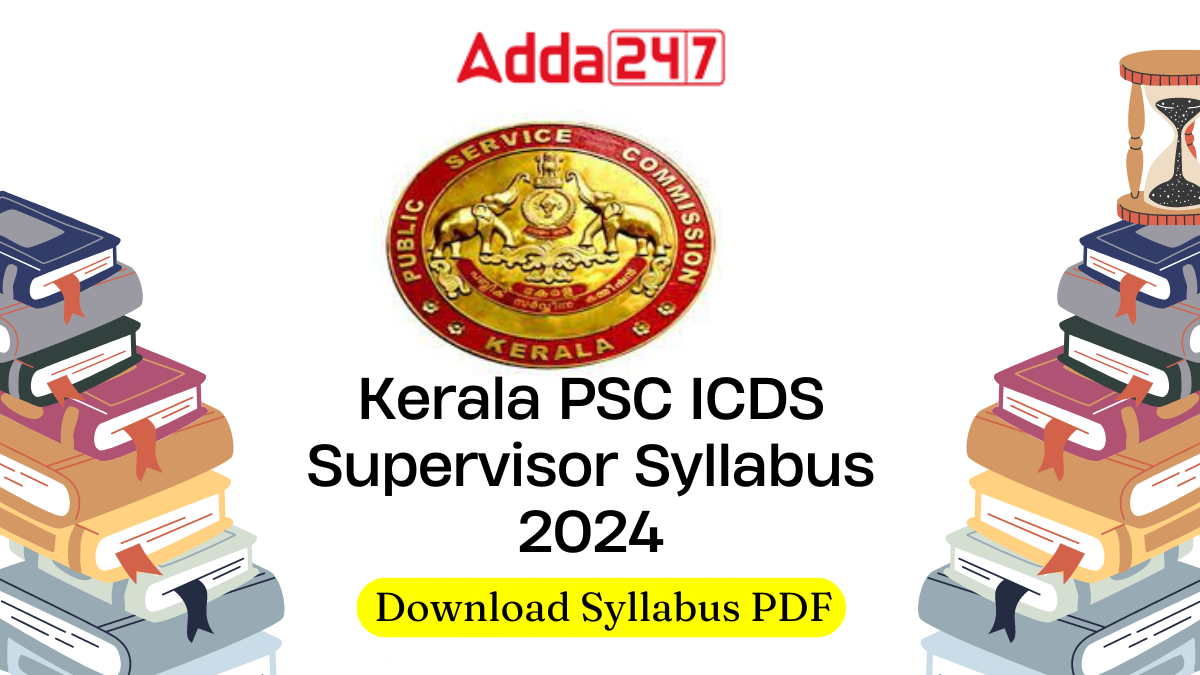

 MP Police SI Syllabus and Exam Pattern 2...
MP Police SI Syllabus and Exam Pattern 2...
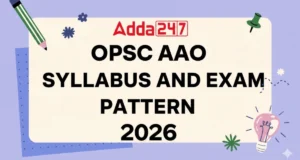 OPSC AAO Syllabus 2026 and Exam Pattern,...
OPSC AAO Syllabus 2026 and Exam Pattern,...
 UP Police Constable Syllabus And Exam Pa...
UP Police Constable Syllabus And Exam Pa...
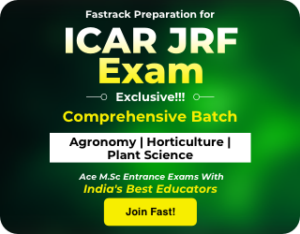
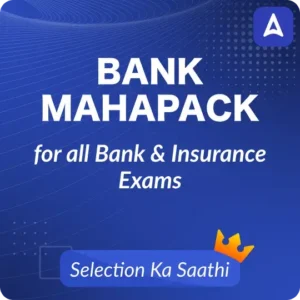
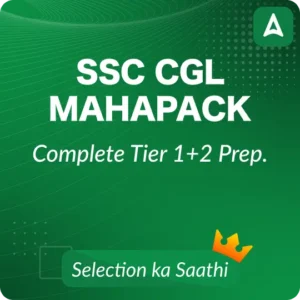

 Adda247 Job portal has complete information about all Sarkari Jobs and Naukri Alerts, its latest recruitment notifications, from all state and national level jobs and their updates.
Adda247 Job portal has complete information about all Sarkari Jobs and Naukri Alerts, its latest recruitment notifications, from all state and national level jobs and their updates.



